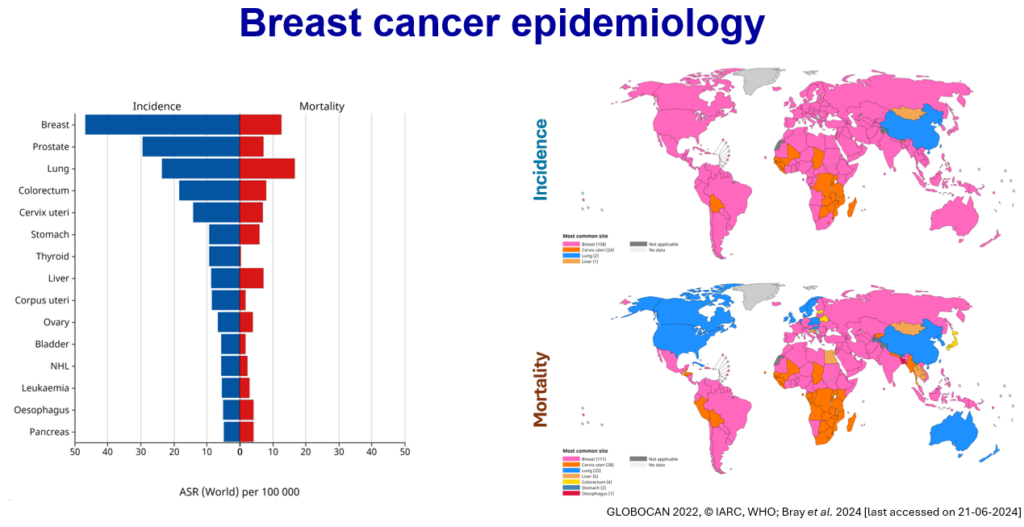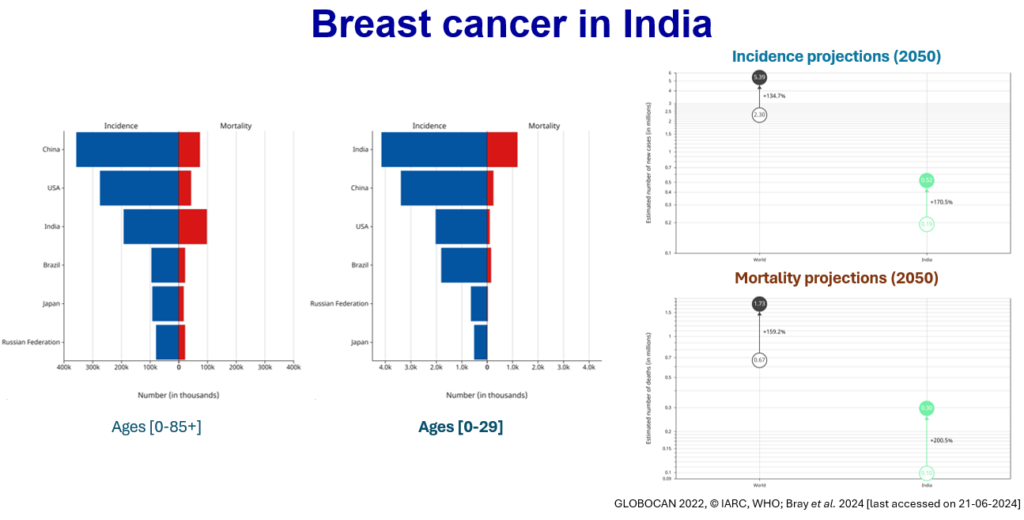Breast Cancer (BrCa) represents a complex malignancy intricately intertwined with hormonal factors. Current therapeutic strategies primarily revolve around targeting hormone receptors, which not only guide treatment decisions but also offer insights into disease prognosis. Despite substantial strides in therapeutic innovation, BrCa remains alarmingly prevalent on a global scale, standing as the foremost cause of cancer-related fatalities among women.


Compelling evidence has emerged, underscoring the pivotal role of androgen signaling in the genesis and progression of BrCa. This revelation assumes significance, given that a substantial majority (60-80%) of BrCa tumors express the Androgen Receptor (AR). The AR, traditionally viewed through the lens of male androgen hormone regulation, has now surfaced as a promising avenue for both prognostication and therapeutic intervention in the context of BrCa.
Our research initiative embarks on a multifaceted exploration of AR’s involvement in the BrCa progression. Employing an integrated molecular approach, our study seeks to shed light on the potential of AR as a therapeutic target for BrCa. Furthermore, we aspire to contribute to the comprehension of genomic classification and the distinct characterization of BrCa, especially among the diverse population of Indian women.
Our research employs a combination of cell line studies, in vivo modeling, and clinical research, involving patients undergoing surgical interventions at AIIMS. We utilize advanced molecular biology techniques, including:
- Gene Expression Analysis: Quantifying AR expression levels in different BrCa subtypes using molecular techniques such as qRT-PCR, Western blotting, and immunohistochemistry.
- Functional Assays: Assessing the impact of AR modulation on BrCa cell proliferation, migration, and apoptosis.
- Clinicopathological studies: Analyzing patient data to correlate AR expression with clinical outcomes, including response to therapy and survival rates.
This multidisciplinary research venture is made possible through the collaborative efforts of basic scientists, pathologists, surgeons, and oncologists specializing in medical, surgical, and laboratory disciplines. By integrating expertise from various fields, we aim to develop a comprehensive understanding of AR’s role in BrCa and translate our findings into clinical applications. Through this multifaceted investigation, we endeavor not only to deepen our understanding of BrCa but also to pave the way for more effective treatments and tailored interventions. Our ultimate goal is to offer a ray of hope to those affected by this pervasive and challenging disease by contributing to the development of novel therapeutic strategies and improving patient outcomes.
